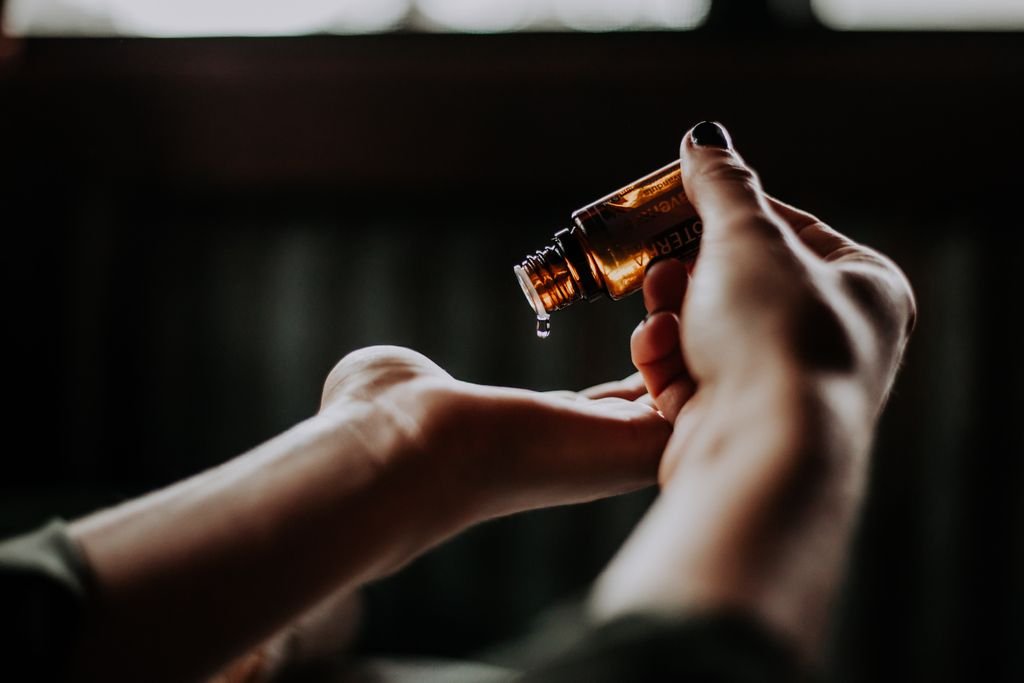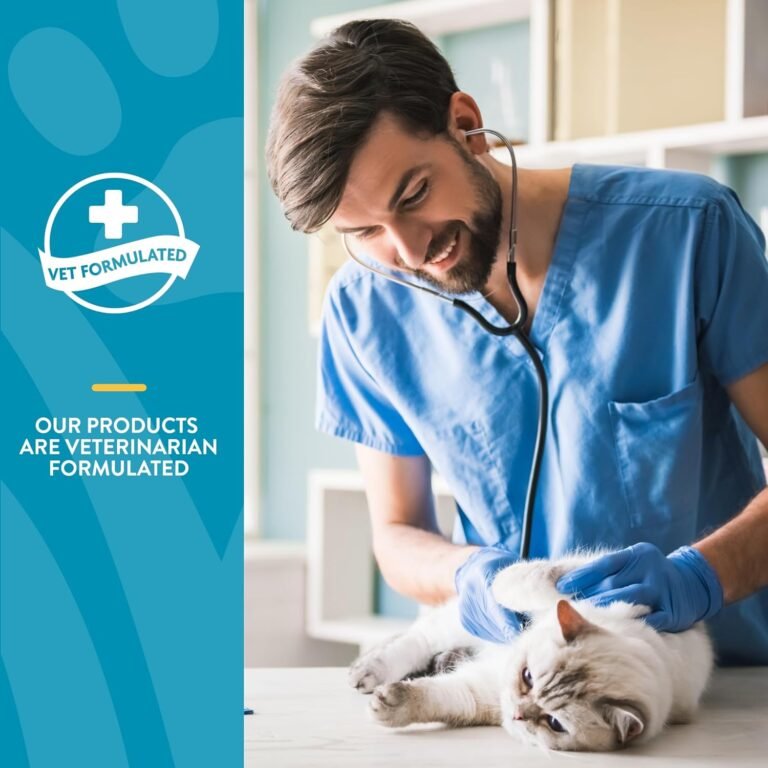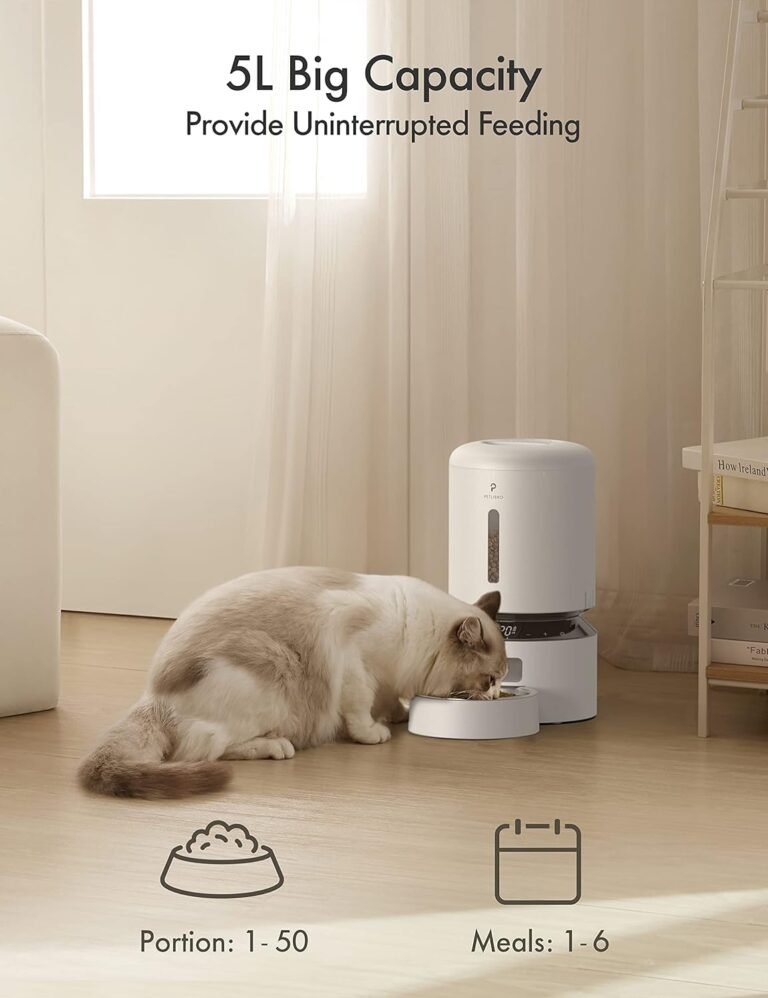Preventing Common Health Issues in Pets: Proactive Measures
Preventive care is crucial for maintaining the health and well-being of our beloved pets. By taking proactive measures, we can prevent common health issues and ensure that our pets live long, happy lives. In this article, we will explore various ways to prevent common health issues in pets and create a safe and healthy environment for them. Additionally, we will discuss the importance of promoting mental and emotional well-being in pets and strategies for preventing parasites and infectious diseases. Here are the key takeaways:
Key Takeaways
- Regular veterinary check-ups are essential for detecting and preventing common health issues in pets.
- Recognizing signs of illness in pets can help address health problems early.
- Preventing dental problems and managing weight and nutrition are important for optimal pet health.
- Creating a safe and healthy environment involves pet-proofing the home, providing exercise and mental stimulation, and maintaining cleanliness.
- Promoting mental and emotional well-being in pets includes understanding the importance of mental stimulation, creating routines, and addressing separation anxiety.
Understanding Common Health Issues in Pets

The Importance of Regular Veterinary Check-ups
Regular veterinary check-ups are essential for preventive care and maintaining the overall health of your pet. These check-ups allow veterinarians to monitor your pet’s well-being and detect any potential issues early on. By addressing these issues before they become more complicated, you can save both time and money in the long run.
During a check-up, the veterinarian will conduct a thorough physical examination, checking your pet’s body, teeth, ears, and more. This comprehensive evaluation helps identify any underlying health concerns that may not be apparent to you as a pet owner. Early detection of diseases or conditions gives you a head start in treating them and ensures the best possible outcome for your pet.
In addition to the physical examination, regular check-ups also provide other important benefits:
- Prevention of common chronic issues: Routine blood tests can detect changes in your pet’s liver or kidney function even before symptoms appear, allowing for proactive measures to prevent severe illness.
- Vaccinations: Staying up to date with vaccinations protects your pet against contagious diseases and helps maintain their overall health.
- Behavioral counseling: Addressing problematic behaviors early on promotes a harmonious relationship between you and your pet.
- Nutrition and weight management: Proper nutrition and weight management play a vital role in preventing obesity and related health issues.
By prioritizing regular veterinary check-ups, you are taking a proactive approach to your pet’s health and well-being. It’s like visiting the doctor for your annual check-up, but for your furry friend. Together with your veterinarian, you can ensure that your pet receives the best possible care and enjoys a long, happy, and healthy life.
Recognizing Signs of Illness in Pets
When it comes to the health of your furry friend, it’s important to be vigilant and recognize signs of illness early on. By being proactive, you can ensure that your pet receives the necessary care and treatment in a timely manner. Here are some common signs that may indicate your pet is not feeling well:
- Decreased appetite or sudden weight loss
- Lethargy or lack of energy
- Excessive thirst or urination
- Changes in behavior or mood
- Persistent coughing or sneezing
If you notice any of these symptoms, it’s important to consult your veterinarian for a proper diagnosis and treatment plan. Remember, early detection is key in preventing further complications and promoting your pet’s overall well-being.
In addition to regular veterinary check-ups, there are proactive measures you can take to support your pet’s health. For example, providing joint supplements for dogs can help maintain their joint health and mobility. These supplements are especially beneficial for older pets or those with arthritis. Your veterinarian can recommend the right supplements for your pet’s specific needs.
By staying attentive to your pet’s health and taking proactive measures, you can ensure that they live a happy and healthy life.
Preventing Dental Problems in Pets
Regular dental care is essential for maintaining your pet’s oral health. Brushing your pet’s teeth regularly can help prevent the buildup of plaque and tartar, which can lead to dental disease. Additionally, providing chew toys or dental treats can help keep your pet’s teeth clean and healthy. It’s also important to schedule regular dental check-ups with your veterinarian to address any potential dental issues early on. These check-ups allow your veterinarian to perform a thorough examination of your pet’s teeth and gums, and they can recommend any necessary treatments or procedures. By taking proactive measures to prevent dental problems, you can help ensure that your pet has a happy and healthy smile.
Managing Weight and Nutrition for Optimal Health
Weight Management: The Winter Layer
Winter often witnesses a decline in activity levels for both humans and dogs. However, this shift in physical engagement doesn’t equate to a reduction in nutritional requirements. In this section, we’ll delve into the critical aspect of adjusting a dog’s diet during winter, taking into account factors such as decreased exercise and the increased need for calories to stay warm. It’s during these colder months that maintaining a healthy weight becomes crucial. To support this aspect of dog winter care, we introduce Mini Pops training treats for weight management, a nutritious and tasty addition to your dog’s routine. Additionally, we’ll touch upon the significance of hydration, recognizing that dogs might be less inclined to drink water in the chilly weather. By providing practical insights into winter nutrition, incorporating products like Mini Pops, pet parents can ensure that their dogs not only maintain a healthy weight but also receive the necessary nutrients to thrive throughout the winter season.
Creating a Safe and Healthy Environment for Pets

Pet-Proofing Your Home: Common Hazards to Avoid
When creating a safe and healthy environment for your furry friend, it’s important to be aware of common hazards in your home. Storing antifreeze and other chemicals out of reach is crucial to prevent accidental ingestion, as these substances can be highly toxic to animals. Additionally, cleaning your pet’s paws after outdoor walks becomes essential to remove salt and other de-icing chemicals that may irritate their sensitive paw pads. It’s equally important to be aware of toxic winter plants and keep them out of reach, as some common seasonal flora can pose risks if ingested by pets. If you suspect toxicity, immediate veterinary attention is crucial. Here are some tips to pet-proof your home:
- Store antifreeze and chemicals out of reach
- Clean your pet’s paws after outdoor walks
- Keep toxic winter plants out of reach
- Seek immediate veterinary attention in case of suspected toxicity
Providing Proper Exercise and Mental Stimulation
Proper exercise and mental stimulation are essential for the overall well-being of your pet. Regular physical activity helps to prevent obesity and maintain a healthy weight, while mental stimulation keeps your pet’s mind sharp and engaged. Here are some tips to ensure your pet gets the exercise and mental stimulation they need:
- Daily walks or play sessions: Take your pet for a walk or engage in interactive play sessions every day to keep them active and entertained.
- Puzzle toys and treat dispensers: Use puzzle toys and treat dispensers to provide mental stimulation and challenge your pet’s problem-solving skills.
- Training sessions: Incorporate training sessions into your pet’s routine to stimulate their mind and reinforce positive behaviors.
Remember, a well-exercised and mentally stimulated pet is a happy and healthy pet!
Maintaining a Clean Living Space for Your Pet
Reducing allergens in your pet’s environment can be highly effective in providing the needed relief. Regular cleaning, using air purifiers, and minimizing exposure to allergens like pollen and dust mites can make a significant difference to your pet’s health. It is important to keep your pet free from parasites like fleas or ticks to prevent allergies and other serious diseases they can transmit. Bathing with hypoallergenic shampoos can help remove allergens from their fur. We are happy to recommend the best products and ideal bathing schedules for your pet’s specific needs. Maintaining clean and well-ventilated living spaces is crucial to minimize the presence of indoor irritants. Pet owners should prioritize regular cleaning routines, focusing on areas where pets spend the most time. Adequate ventilation helps improve air quality and reduces the concentration of allergens indoors. For a more comprehensive approach, consulting with a veterinarian for allergy testing and appropriate treatment is recommended. As a pet owner, the secret to pet happiness and health is to ensure they receive the best veterinary services available. Our preventative care services include: Behavioral counseling, Nutrition and weight management, and Physical exams.
Preventing Accidental Poisoning in Pets
To prevent accidental poisoning in pets, it’s important to take proactive measures to ensure their safety. One of the key factors to consider is the role of diet in dog health. Providing a balanced and nutritious diet is essential for their overall well-being. Avoid feeding them table scraps, especially bones, as these can cause gastrointestinal upset. Additionally, it’s crucial to keep garbage and compost areas secure to prevent pets from ingesting potentially toxic items. If your pet does ingest something that is not part of their regular diet, it’s recommended to contact your veterinarian for guidance.
Promoting Mental and Emotional Well-being in Pets

Understanding the Importance of Mental Stimulation
Mental stimulation is crucial for the overall well-being of your pet. Just like humans, pets need mental exercise to keep their minds sharp and engaged. Providing enriching activities and stimulating environments can help prevent boredom and promote mental health. Here are some ways you can ensure your pet receives the mental stimulation they need:
- Interactive toys: Toys that require problem-solving or provide a challenge can keep your pet mentally engaged.
- Training sessions: Regular training sessions not only teach your pet new skills but also provide mental stimulation.
- Puzzle feeders: These interactive feeders require your pet to work for their food, providing mental exercise while they eat.
Remember, a mentally stimulated pet is a happy and content pet. By incorporating these activities into your pet’s routine, you can help prevent behavioral issues and promote their overall well-being.
Creating a Routine and Providing Structure
Creating a routine and providing structure is essential for the well-being of your pet. Consistency and predictability help pets feel secure and reduce anxiety. Here are some tips to help you establish a routine:
- Set a regular feeding schedule: Feeding your pet at the same time every day helps regulate their digestion and prevents overeating.
- Establish a consistent exercise routine: Regular exercise is important for your pet’s physical and mental health. Set aside dedicated time each day for playtime and walks.
- Create a designated sleeping area: Providing a comfortable and quiet space for your pet to sleep will help them feel safe and secure.
- Implement training sessions: Regular training sessions not only teach your pet important commands but also provide mental stimulation and reinforce the bond between you and your pet.
By creating a routine and providing structure, you are setting your pet up for success and promoting their overall well-being.
Recognizing and Addressing Separation Anxiety
Separation anxiety can be a challenging issue for both pets and their owners. It occurs when a pet becomes distressed or anxious when separated from their owner or when left alone. Recognizing the signs of separation anxiety is important in order to address the issue effectively. Some common signs include excessive barking or howling, destructive behavior, and house soiling. If you suspect that your pet may be experiencing separation anxiety, there are several natural solutions that can help alleviate their distress:
- Creating a safe space: Provide a designated area where your pet feels secure and comfortable, such as a crate or a specific room.
- Gradual desensitization: Gradually expose your pet to short periods of separation, increasing the duration over time to help them become more accustomed to being alone.
- Interactive toys and puzzles: Engage your pet’s mind and keep them occupied with interactive toys and puzzles that provide mental stimulation.
Remember, addressing separation anxiety requires patience and consistency. If you’re unsure about how to best help your pet, consult with a professional trainer or veterinarian for guidance and support.
Enriching Your Pet’s Environment
Reducing allergens in your pet’s environment can be highly effective in providing the needed relief. Regular cleaning, using air purifiers, and minimizing exposure to allergens like pollen and dust mites can make a significant difference to your pet’s health. Parasite Control: It is important to keep your pet free from parasites like fleas or ticks to prevent allergies and other serious diseases they can transmit. Dr. Josh is happy to recommend the best and safest parasite prevention measures for your fur-ever friend. Bathing: Bathing with hypoallergenic shampoos can help remove allergens from their fur. We are happy to recommend the best products and ideal bathing schedules for your pet’s specific needs. Allergy Testing: We offer serum allergy testing, which is a blood test for environmental allergies. Identifying the underlying causes of allergies can help us provide tailored treatments to address your pet’s unique needs. Nutritional Therapy: We offer food allergy trials to diagnose food allergies. We are happy to recommend the best diets and nutritional plans for your pet’s specific needs.
Preventing Parasites and Infectious Diseases in Pets

Regular Vaccinations and Preventive Medications
Vaccines have been instrumental in reducing the prevalence of life-threatening diseases in the feline population, contributing to improved overall health and well-being. Cost-Effectiveness of Preventative Care Investing in preventative care, including vaccinations, is not only beneficial for the health of cats but also for the financial well-being of pet owners. The cost of treating preventable illnesses far exceeds the expense of routine vaccinations. By prioritizing preventative care, cat owners can potentially save significant amounts on veterinary bills and ensure a higher quality of life for their beloved pets.
Protecting Against Fleas, Ticks, and Heartworm
To protect your pet from fleas, ticks, and heartworm, there are several proactive measures you can take. First, it’s important to implement regular preventive medications. These medications are specifically designed to repel and kill fleas, ticks, and heartworms, keeping your pet safe from these parasites and the diseases they can transmit. Second, maintain a clean living environment for your pet. Regularly vacuuming your home, washing your pet’s bedding, and keeping outdoor areas free from debris can help reduce the risk of infestation. Additionally, minimize your pet’s exposure to areas where fleas and ticks are commonly found, such as tall grass and wooded areas. Lastly, practice good hygiene by regularly grooming your pet and checking for any signs of infestation or illness. By following these proactive measures, you can help ensure your pet remains protected and healthy.
Preventing the Spread of Infectious Diseases
When it comes to preventing the spread of infectious diseases in pets, there are several important measures you can take to keep your furry friend safe and healthy. Regular vaccinations and preventive medications play a crucial role in protecting your pet against harmful microorganisms. These vaccinations, such as Bordatella and Parainfluenza, help prevent highly contagious respiratory infections in dogs. It’s important to stay informed about the recommended vaccinations for your pet and ensure they are up to date.
In addition to vaccinations, there are other proactive steps you can take to prevent the spread of infectious diseases. Here are some key strategies:
- Practice good hygiene: Regularly clean and disinfect your pet’s living areas and exercise spaces to reduce the risk of disease transmission.
- Monitor pet interactions: Be mindful of your pet’s interactions with other animals, especially in high-risk environments.
- Choose low-risk environments: When possible, select environments that have a lower risk of disease transmission.
By implementing these measures, you can significantly reduce the chances of your pet contracting and spreading infectious diseases. Remember, the collaboration between pet owners and veterinarians is crucial in maintaining the overall well-being of your furry friend.
Maintaining Good Hygiene Practices
Maintaining good hygiene practices is crucial for keeping your pet healthy and happy. Regular grooming, including bathing with hypoallergenic shampoos, helps remove allergens from their fur and promotes a shiny coat. It is also important to keep your pet free from parasites like fleas or ticks to prevent allergies and other serious diseases they can transmit. Dr. Josh is happy to recommend the best and safest parasite prevention measures for your fur-ever friend. Additionally, disinfecting living areas and exercise spaces, using air purifiers, and minimizing exposure to allergens like pollen and dust mites can make a significant difference to your pet’s health. By following these hygiene practices, you can ensure that your pet stays healthy and comfortable.
Preventing Parasites and Infectious Diseases in Pets
Conclusion
In conclusion, proactive measures in preventing common health issues in pets are essential for their overall well-being. Regular check-ups and preventive care services can help detect and prevent potential problems early, minimizing the need for costly treatments down the road. By addressing age-related concerns, providing behavioral counseling, nutrition and weight management, physical exams, and vaccinations, we can ensure our beloved pets live long, happy, and healthy lives. At Middle County Animal Hospital, we are dedicated to providing personalized care tailored to the needs of each individual furry patient. Invest in preventative care and give your pets the best chance at a lifetime of love and joy.
Frequently Asked Questions
What are the benefits of regular veterinary check-ups for pets?
Regular veterinary check-ups allow veterinarians to monitor your pet’s overall health and detect potential problems early. This proactive approach can help prevent the onset of severe illness and minimize the need for costly treatments down the road.
How can I prevent dental problems in my pet?
Regular dental care, including brushing your pet’s teeth and providing dental treats or toys, can help prevent dental problems. Additionally, scheduling regular dental cleanings with your veterinarian is important for maintaining your pet’s oral health.
What can I do to manage my pet’s weight and nutrition?
Proper weight management includes feeding your pet a balanced diet, controlling portion sizes, and providing regular exercise. Consult with your veterinarian to determine the appropriate diet and exercise plan for your pet’s specific needs.
How can I pet-proof my home to create a safe environment for my pet?
Pet-proofing your home involves removing potential hazards such as toxic plants, chemicals, and small objects that can be swallowed. Securing electrical cords and keeping harmful foods out of reach are also important safety measures.
What are some signs of separation anxiety in pets?
Signs of separation anxiety in pets may include excessive barking or meowing, destructive behavior, house soiling, and excessive panting or drooling. Consult with your veterinarian for strategies to help alleviate separation anxiety in your pet.
How can I protect my pet from fleas, ticks, and heartworm?
Regular use of flea and tick preventatives, as well as heartworm preventatives, can help protect your pet from these parasites. It is important to follow your veterinarian’s recommendations for preventive medications and keep your pet’s environment clean.







